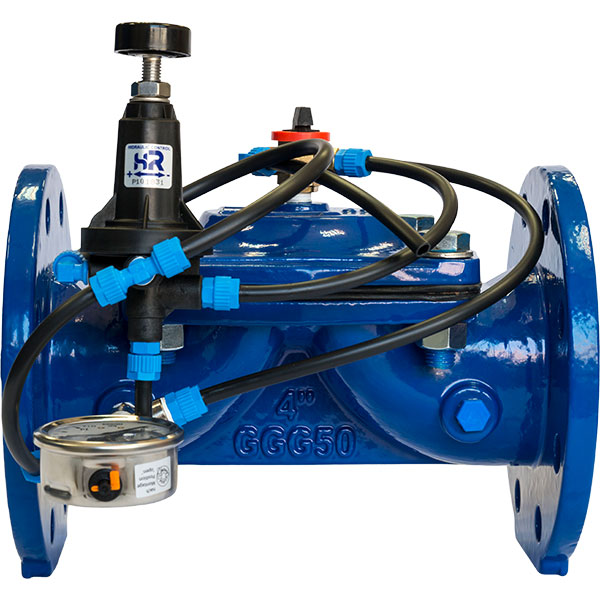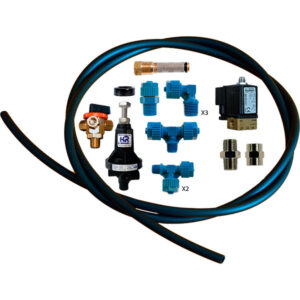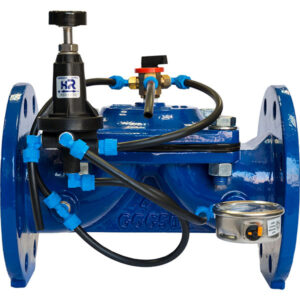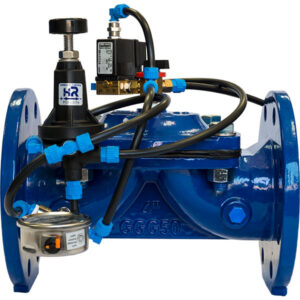Descripción
The hydraulic pressure sustaining valve is designed to maintain a minimum pressure upstream, regardless of changes in flow or pressure downstream. The valve is regulated by a 2- or 3-way pilot, allowing full opening of the valve when the upstream pressure is greater than the preset pressure. If the pressure is lower, the valve will remain closed.
CHARACTERISTICS:
- It does not need external energy, the energy is received from the water that circulates through the pipe.
- Simplicity in design, construction and operation.
- Stable and precise control regardless of flow rate.
FUNCTION:
The pressure sustaining valve is activated by line pressure and regulated by the pilot valve. This includes a diaphragm that controls the opening or closing of the main valve by upstream pressure, sending more or less pressure to the main valve control chamber.
If the upstream pressure falls below the one set in the pilot, the valve tends to throttle the flow of water or close, increasing the pressure up to the one set in the pilot. When the upstream pressure rises above the pilot setting, the valve will open, lowering the pilot setting pressure.
APP:
- The pressure sustaining hydraulic valve is used when a minimum downstream pressure is needed, or when you want to reduce upstream pressure surges.
It can be made in polyethylene tube and copper tube.
For any assembly consult.



